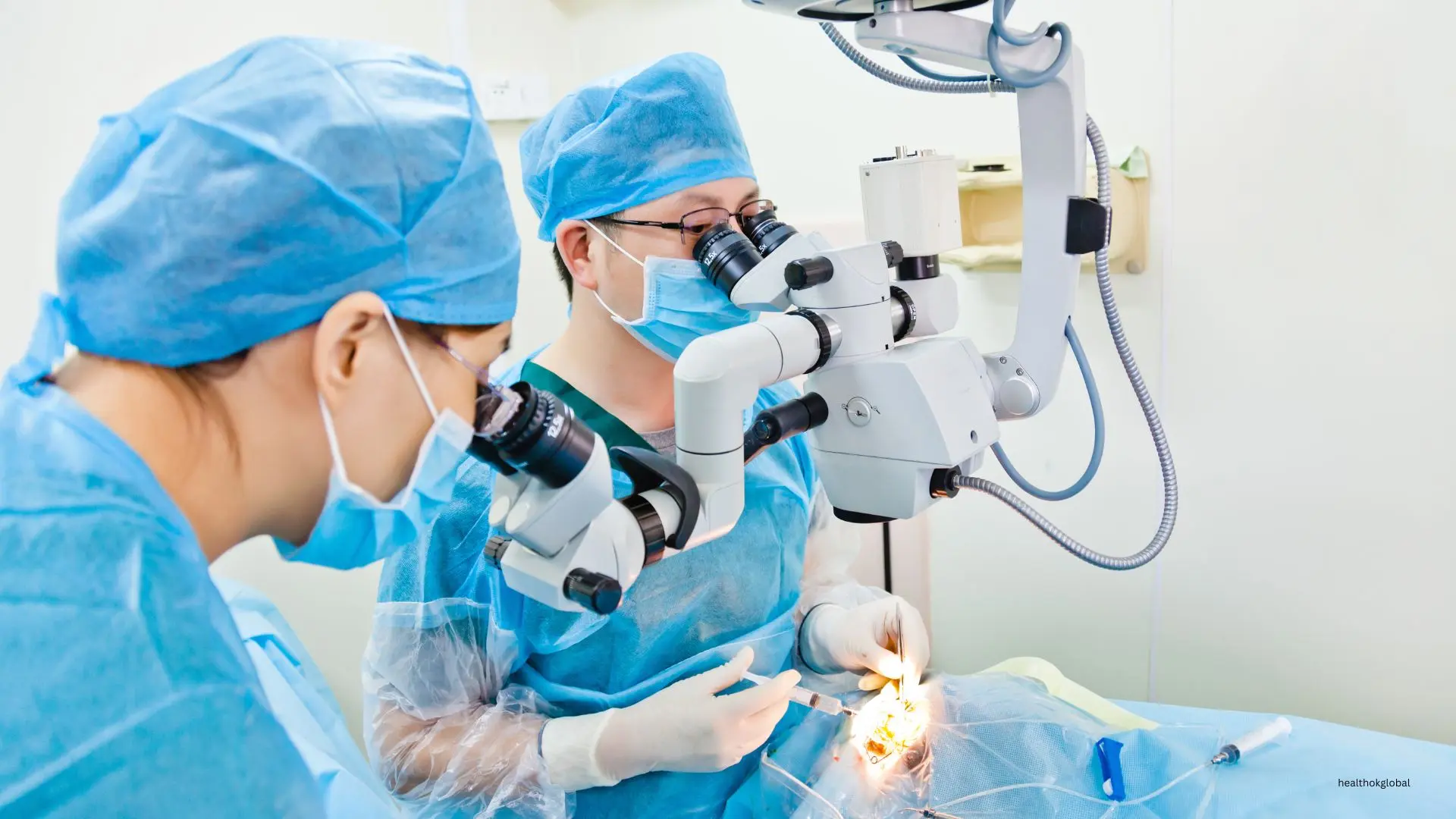Eye surgery encompasses a range of procedures aimed at correcting vision problems, treating eye diseases, and improving overall eye health.

Blog
Understanding Various Types of Eye Surgery
Eye surgery encompasses a range of procedures aimed at correcting vision problems, treating eye diseases, and improving overall eye health. From laser eye surgery to cataract removal, these procedures have advanced significantly, offering effective solutions for various eye conditions. This blog explores the different types of eye surgery, their benefits, and important considerations for those considering these procedures.
LASIK is one of the most popular and well-known types of laser eye surgery. It is used to correct refractive errors such as nearsightedness, farsightedness, and astigmatism. The procedure involves reshaping the cornea to improve the eye's ability to focus light on the retina. LASIK offers quick recovery times and significant improvements in vision for most patients. Benefits of LASIK include:
Most patients experience improved vision within 24 to 48 hours.
LASIK has a high success rate with a low risk of complications.
Results are typically long-lasting, reducing the need for glasses or contact lenses.
PRK is another type of laser eye surgery used to correct refractive errors. Unlike LASIK, PRK does not involve creating a flap in the cornea. Instead, the outer layer of the cornea is removed, and the underlying tissue is reshaped with a laser. PRK is often recommended for patients with thin corneas or those who are not suitable candidates for LASIK. Benefits of PRK include:
Ideal for patients who are not eligible for LASIK due to corneal thickness.
Eliminates the risk of flap-related complications.
Provides stable and long-lasting vision correction.
Cataract surgery is a common procedure used to remove the cloudy lens of the eye and replace it with an artificial intraocular lens (IOL). This surgery is typically performed on an outpatient basis and has a high success rate in restoring clear vision. Cataract surgery is particularly beneficial for older adults who experience vision loss due to cataracts. Key points about cataract surgery include:
Patients can go home the same day.
Cataract surgery is one of the most successful surgeries performed.
Restores clear vision, significantly improving quality of life.
Glaucoma surgery is performed to reduce intraocular pressure and prevent further damage to the optic nerve. There are several types of glaucoma surgeries, including trabeculectomy, laser trabeculoplasty, and minimally invasive glaucoma surgery (MIGS). These procedures help manage glaucoma and preserve vision. Benefits of glaucoma surgery include:
Effective in lowering eye pressure to prevent optic nerve damage.
Helps maintain vision and prevent further loss.
Various surgical techniques tailored to patient needs.
Retinal surgery includes procedures to repair retinal detachments, treat diabetic retinopathy, and address macular degeneration. Common retinal surgeries include vitrectomy, scleral buckling, and laser photocoagulation. These procedures are essential for preserving vision and preventing further retinal damage. Key benefits of retinal surgery include:
Prevents further vision loss and may restore lost vision.
Addresses a variety of retinal conditions effectively.
Utilizes cutting-edge technology for optimal outcomes.
A corneal transplant, or keratoplasty, involves replacing a damaged or diseased cornea with a healthy donor cornea. This surgery is often performed to treat conditions such as keratoconus, corneal scarring, and corneal dystrophy. Corneal transplants can significantly improve vision and quality of life for patients with severe corneal issues. Important points about corneal transplants include:
Can restore vision lost due to corneal damage.
Most patients experience significant improvements in vision.
Includes full-thickness and partial-thickness transplants.
RLE, also known as clear lens extraction, is a procedure where the eye's natural lens is replaced with an artificial lens to correct refractive errors. This surgery is similar to cataract surgery and is often recommended for patients with severe farsightedness or presbyopia. RLE can reduce dependence on glasses or contact lenses. Benefits of RLE include:
Effective for patients with high levels of farsightedness.
Provides stable and lasting vision correction.
Suitable for patients not eligible for LASIK or PRK.
ICL surgery involves implanting a collamer lens in front of the natural lens to correct refractive errors. This procedure is an alternative to LASIK and PRK for patients with high levels of myopia or thin corneas. ICL provides excellent visual outcomes and is reversible if necessary. Key benefits of ICL include:
Lens can be removed if needed.
Provides sharp and clear vision.
Effective for patients with severe nearsightedness.
Pediatric eye surgeries address various eye conditions in children, such as strabismus (crossed eyes), congenital cataracts, and pediatric glaucoma. Early intervention through surgical procedures can correct these issues and support healthy visual development in children. Key points about pediatric eye surgery include:
Corrects eye issues early to promote healthy vision development.
Utilizes techniques tailored to pediatric patients.
Enhances visual function and overall quality of life for children.
Reconstructive eye surgery focuses on repairing and restoring the structure and function of the eye after injury or trauma. This includes procedures to repair orbital fractures, correct eyelid malpositions, and address other structural issues that impact vision and eye health. Benefits of reconstructive eye surgery include:
Repairs damage to restore normal eye function.
Addresses cosmetic concerns to improve appearance.
Provides a holistic approach to eye health and function.
Oculoplastic surgery involves cosmetic and reconstructive procedures around the eyes and the surrounding structures. These surgeries include eyelid lifts (blepharoplasty), removal of tumors around the eyes, and repair of tear duct obstructions. Oculoplastic surgery can enhance both the function and appearance of the eyes. Key benefits of oculoplastic surgery include:
Improves the aesthetic appearance of the eyes and surrounding areas.
Addresses functional problems such as tear duct obstructions and eyelid malpositions.
Provides a combination of cosmetic and functional improvements.
Understanding the different types of eye surgery and their benefits can help individuals make informed decisions about their eye health. Each type of surgery offers unique advantages and is suited for specific conditions. Consulting with an ophthalmologist is essential to determine the most appropriate procedure based on individual needs and eye health. With advancements in technology, eye surgeries have become safer and more effective, providing hope for those seeking improved vision and quality of life.
LASIK is one of the most popular and well-known types of laser eye surgery. It is used to correct refractive errors such as nearsightedness, farsightedness, and astigmatism. The procedure involves reshaping the cornea to improve the eye's ability to focus light on the retina. LASIK offers quick recovery times and significant improvements in vision for most patients. Benefits of LASIK include:
PRK is another type of laser eye surgery used to correct refractive errors. Unlike LASIK, PRK does not involve creating a flap in the cornea. Instead, the outer layer of the cornea is removed, and the underlying tissue is reshaped with a laser. PRK is often recommended for patients with thin corneas or those who are not suitable candidates for LASIK. Benefits of PRK include:
Cataract surgery is a common procedure used to remove the cloudy lens of the eye and replace it with an artificial intraocular lens (IOL). This surgery is typically performed on an outpatient basis and has a high success rate in restoring clear vision. Cataract surgery is particularly beneficial for older adults who experience vision loss due to cataracts. Key points about cataract surgery include:
Need Personalized Health Guidance?
Get expert advice tailored to your specific health needs from our qualified healthcare professionals.





